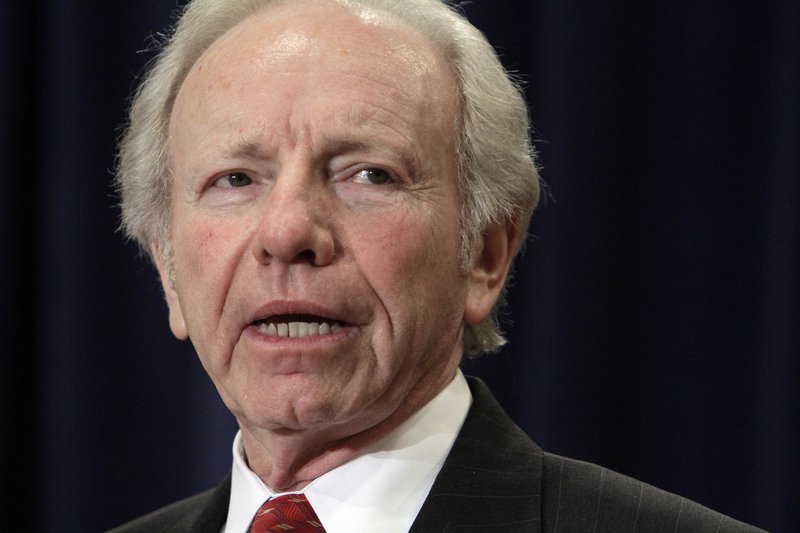WASHINGTON – The U.S. Senate’s only two independents have a message for Angus King: An independent senator still has to pick a side.
Sens. Bernie Sanders of Vermont and Joe Lieberman of Connecticut revel in their political freedom to bash Republicans or Democrats. But they say that if the former Maine governor is elected to succeed Republican Sen. Olympia Snowe, he will find that in a Senate run by the two major political parties, independence has its limits.
When King announced his independent Senate candidacy, six days after Snowe announced her decision to retire, he said he wouldn’t decide which party caucus he would join before he arrived in Washington.
With the balance of power in the Senate potentially resting on the outcome of Maine’s election, King could be a powerful figure if he were to win the race and stick to that vow, analysts say.
King said in a phone interview last week that his preference would be “not to caucus at all, but to caucus with either side on an issue-by-issue basis. I want to maintain as independent a status as I possibly can while still being an effective senator for Maine.”
But that’s the rub about being an independent in the Senate, Sanders and Lieberman said in separate interviews last week.
Being the most effective senator possible means getting the best possible committee assignments, because that’s where the work of the Senate really happens and that’s where a lawmaker often can affect policies and funding decisions that aid his or her state.
And it’s the Democratic and Republican caucuses that divvy up those committee assignments and decide which lawmakers chair committees and subcommittees.
Lieberman and Sanders caucus with the Democrats.
Lieberman said he could envision a scenario in which, if King winds up as the vote that determines which party gets the majority, he could try to bargain with both parties to remain an independent who doesn’t caucus with either party but gets prime committee assignments.
But the likely reality is that King would find “this is a place … that is still organized by parties,” Lieberman said. “So you have to decide which of two caucuses you want to get into.”
Lieberman was a Democrat who supported President Bush’s Iraq war policy and lost his 2006 primary to an anti-war candidate before winning re-election as an independent. He will retire from the Senate after this year.
Sanders, a socialist, served in the House as an independent before winning his Senate seat in 2006.
Sanders agreed that it is important for a senator to caucus with one of the parties.
“I am on five important committees and that is important to me,” he said. “I honestly don’t know how it is possible (not to caucus with a party). I just don’t know how you do it otherwise.”
Sanders and Lieberman tout the joys of having more freedom to speak out, even if both generally vote with their caucuses.
“I am an independent. I think both political parties, especially the Republican Party, are much too dominated by big money and not reflecting the needs of working families,” Sanders said.
Being an independent “gives you the freedom to speak out against both parties when you feel it necessary. I think there probably has been nobody in the Democratic Party who has been more critical of the president than I have been, on many issues.”
Lieberman, who was first elected to the Senate in 1988, said his years as an independent have been the “most satisfying because I have felt more intensely what I always felt, that my obligation is to all the people of the state, not to march to the tune that my political party is playing just because they are playing it.”
King said he understands the joys of being an independent and the reason why, practically, he still may have to take a side.
While his goal is to maintain independence as a way of trying to break the gridlock in Washington, he wants to be the most powerful voice for Maine possible, he said.
So while his preference is not to join either caucus, “that may not be possible,” King said.
Analysts have speculated that the socially liberal and fiscally conservative King is more likely to join the Democrats’ caucus if he wins in November. While King supported George W. Bush in 2000, he endorsed Democrat John Kerry in 2004 and has backed Barack Obama in 2008 and this year.
John Baughman, a Bates College associate professor of politics, said King will find himself forced to caucus for practical reasons if he defeats the Democratic and Republican nominees and wins the Senate seat — and predicted he is likely to caucus with the Democrats.
Baughman said it is “harder for an independent centrist to justify caucusing with the GOP.”
As the center in American politics has evaporated over the past quarter-century, Senate Republicans have moved to the right at about twice the rate that Senate Democrats have moved to the left, Baughman said.
“Unlike a governor, who can remain outside partisan politics to a great degree, a senator does not have that luxury,” Baughman said. “(King) will figure out how closely to ally himself with a caucus, but there’s no question he’ll have to.”
MaineToday Media Washington Bureau Chief Jonathan Riskind can be contacted at 791-6280 or at:
jriskind@mainetoday.com
Twitter: Twitter.com/MaineTodayDC
Send questions/comments to the editors.





Success. Please wait for the page to reload. If the page does not reload within 5 seconds, please refresh the page.
Enter your email and password to access comments.
Hi, to comment on stories you must . This profile is in addition to your subscription and website login.
Already have a commenting profile? .
Invalid username/password.
Please check your email to confirm and complete your registration.
Only subscribers are eligible to post comments. Please subscribe or login first for digital access. Here’s why.
Use the form below to reset your password. When you've submitted your account email, we will send an email with a reset code.